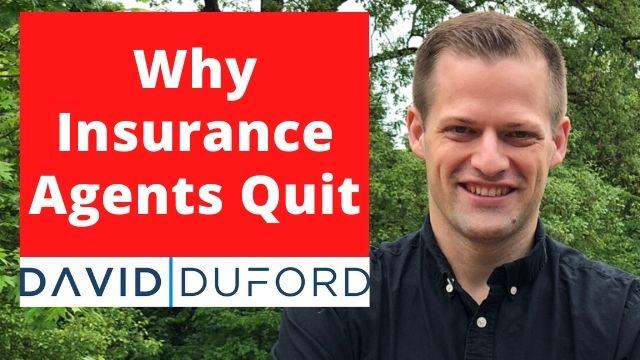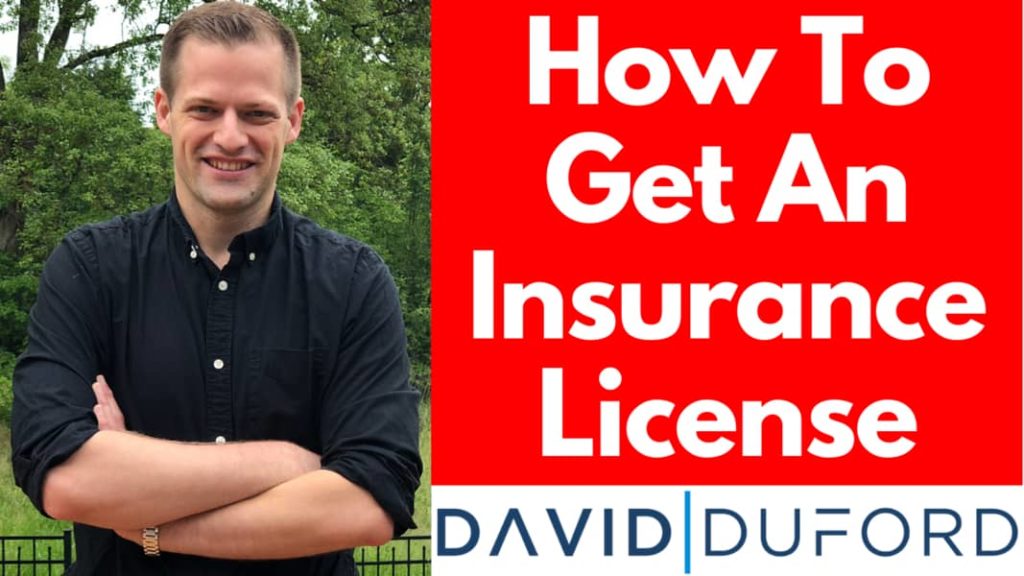If you’re thinking about selling insurance from home, chances are you’re wondering how to actually do it.
Is it a process that actually works? And what steps do you have to take to successfully accomplish an at home insurance sales business?
In this article, we will discuss how to sell insurance from home using my 18 tips.
Let’s jump right in and talk about the process of how to sell insurance from home successfully.
Quick navigation links for this article:
1. Pick A Niche
It’s really important to understand that there’s a difference between specialization and generalization.
For example, think of the doctor in terms of how much money he makes.
Who makes more:
-
- The general physician, who knows a little about a lot, or,
-
- The specialist, the cardiac surgeon, who knows a lot about one little thing?
Bottom line, it’s always the cardiac surgeon – the SPECIALIST – that makes more.
Become A Specialist
That concept extends to selling insurance.
When you get good at one product and become a specialist at it, it’s likely you’re going to make a lot more money than other agents that know a little bit about a lot of different products.
Why?
Because they really can’t connect well with the client. They don’t have an in-depth understanding of one product.
Even though you’re selling over the phone, look at the different niches out there.
For example, I discuss at length how you can sell final expense over the phone, even Medicare Advantage.
They’re mass market products, so there are millions of prospects. It’s not going to be hard to get leads there.
They’re also one call close products, so you don’t have to go back and forth a million times on the phone to get an insurance sale closed.
They’re an insurance lead driven type of model that’s also scalable, so you don’t have to cold call in order to sell Medicare Advantage or final expense.
You just purchase leads. Then as you get good and consistent, you can increase the number of leads that you buy in order to do more business.
2. Set Boundaries With Family Members
This comes from somebody who has worked from home in the insurance business for three years without being in the field.
A lot of the time your family will be a little confused about when you are “at work” when you are at home.
“Hey, Dad’s here. That must mean he’s always available.”
Not the case.
You’re WORKING from home. So you need to set up boundaries that the family respects and understands.
Lay The Ground Rules
Lay out those ground rules right up front, so that your kids and spouse know not to violate them during work time. Again, because you’re home doesn’t mean that you’re not working.
What do those boundaries look like?
For me, when my doors are closed in my office, everybody knows not to bother me. Also, people know that I’m not available, so they don’t knock on my door unless it’s an emergency.
That also tells the kids to go play somewhere else, so they don’t interrupt me if I’m doing a live stream or talking to an agent.
My wife knows, too. It’s rare that we’re going to go out and do something during the day unless we pre-schedule it ahead of time.
3. Make Sure You Have Proper Equipment
First thing, make sure you have enough monitors, enough real estate visually in order to work your agent sites.
Also, consider using a power dialer and look into insurance quoters, too.
Make sure that you’ve got a good computer. You don’t have to spend a ton of money on a computer. You can use a laptop. You can use a regular PC.
Make sure you have a good headset. I like hard connections, as opposed to USB.
I find that USB connection devices sometimes can get muffled when you’re talking to your client.
They can’t quite understand or hear you. If you have a hard-wired connection to your computer or a laptop device, whatever it is, that’s best.
Then lastly, I recommend a hardwired connection to your internet.
I do a lot of video conferences and I don’t want there to be Wi-Fi based interruptions because somebody is using Wi-Fi in the house.
Maybe they’re watching Netflix and draining the available Wi-Fi ability. So get a hardwired connection if you can. I think your connectivity quality will increase because of that.
4. Software Concerns
You have to have the proper hardware in place, as well as the proper software. So a couple of things here…
Quoters
If you’re running a life insurance business, check out Ninja Quoter.
They’ll run non-medical life insurance, fully underwritten life insurance for term, universal, whole life, as well as final expense.
If you’re doing final expense over the phone, I really like FEX Quotes.
They offer an excellent service, and are very affordable. There’s a lot of others out there, but these are the two that come to mind.
E-Apps
Make sure you’re familiar with your carriers’ electronic application processes, as well as any verbal authorization application processes.
Again, all of this should be found on the companies’ websites. You should be able to research that ahead of time, as well as in the agent guides too.
CRM Database/Power Dialer
Most agents need a CRM to take control and track their data, leads, and clients.
Take a look at OnePageCRM or LessAnnoyingCRM.
Also check out a power dialer.
If you’re working a lot of leads, you’re going to need some service that will automatically dial through your leads a little bit faster than just hand dialing.
I like the following:
-
- Mojo Sells, and,
These are all really good services. Check them out. They do a good job doing everything I’ve described.
Then also consider picking up multiple phone numbers.
I like Google Voice or Skype and purchase multiple phone numbers.
That way, you can flip your phone number around as you call because, let’s face it, if somebody sees the same number dial five times in a day, they’re not going to pick up on the sixth call most likely.
They’re going to think you’re just another telemarketer.
5. Familiarize Yourself With The Verbal And Electronic Application Processes
Again, when you sell over the phone from home, I like to do electronic applications as much as possible, and you definitely want to never do a paper app.
Let me explain why.
The first reason I don’t like doing paper apps ever is because it adds an unnecessary step.
You got to mail an application off, hope the client receives it and signs it in time, and then returns it back. You’ll lose a lot of those sales.
Whereas, eApp has a much higher success rate, especially with a younger clientele.
If you’re working with older clientele, like a Medicare Advantage or final expense client, I prefer a verbal application process instead.
That’s where the whole application is completed entirely verbally over the phone without any sort of digital or certainly wet paper signature process.
6. Get Telesales Friendly Carriers
Not all carriers are good for telesales.
Just because they offer processes doesn’t mean they know what they’re doing, so make sure you research the carriers that have had experience in this marketplace.
They’ve got streamlined processes with instant decisions, so you know if your client’s been approved or not.
And make sure you take care of this right away because it’s pretty important.
7. Get Your Licensing Squared Away
If you’re just getting started, it’s likely that when you sell from home, you’re going to sell to multiple states.
If that is the case you will need to go to NIPR.com and purchase a non-resident license.
How many should you get? It depends.
Three to five are fine. A lot of people do that many if they’re doing any kind of a statewide type of marketing campaign or a live transfer type of campaign.
Make sure you notify your carriers that you’re now an appointed non-resident licensed agent in those states, just so they have that information ahead of time, so you’re ready to write in those states.
8. Optimize Your Lead Strategy
When I say optimize, I mean make sure you pick the best choice for your budget and the type of products that you’re selling.
There are a lot of different types of insurance leads out there. You can take a look at Facebook leads, direct mail leads, telemarketed leads, live transfer leads, and then TV leads.
All of these work well in if you are selling final expense, Medicare Advantage, and term insurance when selling to the general individual.
Look through the different options, check out my website for more information, and figure out what works best for you.
9. Sound Quality
Before you start calling your leads, ensure your sound quality is spot on. This is related earlier to hardwiring your internet connection.
A lot of agents use telephony that just doesn’t sound good.
Good sound quality is especially important if you’re calling an older clientele, like final expense or Medicare seniors.
If they can’t hear you, they’re not going to listen to you. They’re going to hang up the phone instead.
Test your system out ahead of time. Call a couple of people you know, ask them how clearly they can hear you.
If there are problems, consider switching out your headset, or even switching out your service or your internet.
10. Listen To Recordings Of Your Sales Calls
This is really important to improve your ability to sell from home. You want to hear and critique your insurance sales presentation.
Many times as you do a sales presentation, you’re not actively thinking about what you’re saying. You’re just trying to survive, and get through, and maybe make a sale.
But there may be some mistakes you’re making that you’re not aware of.
By listening to your sales recording, you’ll be able to identify all sorts of things that you can improve without anybody telling you to.
That’s just the power of recording. More agents should do it, but don’t unfortunately.
11. Make Sure Your Service Provider Is Consistent In Your Area
Again, it goes back to point one.
Hard wired connections are usually better in quality or quality consistently.
So again, pushing the hard wiring point. Reliable connection is vital!
12. Tonality And Pacing
When you’re selling insurance from home over the phone, especially if you’re not using a Zoom or video type of process (most won’t), you have to make sure that the limited tools you have get results.
In other words, you don’t have body language, eye contact, a handshake to speak for you. All you have is what you say, and how you say it, and the volume you use.
Focus first on your tonality and modulating it when appropriate.
Don’t sound monotonous when you’re talking over the phone or people will hang up. Sound like a real human being. Sound enthusiastic!
It’s important to note if you think it seems cheesy as you’re doing it at home and kind of roll your eyes at yourself, it’s not going to be as clearly cheesy to the other person.
Try standing while talking, make sure that you’re smiling when you talk to the person too – that smile can translate in your voice.
Be enthusiastic. You’re going to help somebody out with insurance needs.
Also, make sure that you lower your tone when you’re describing important points and slow down your pace when you emphasize a point.
This will all make the presentation a lot more engaging and certainly make it stand out while you sell. You’ll have more energy when you’re presenting that way too.
13. Build Rapport
Rapport is simply building a relationship with your clients, and it’s really important. You have to understand a lot of sales live or die off of rapport building.
Building rapport is even more important when selling over the phone than face to face.
You should try to shoot for somewhere between five to 10 minutes of solid rapport building before you get into the sales process.
Ask a lot of open-ended questions about work, family, hobbies, and really just keep the presentation about the client, not about you.
Do less talking. Let the client talk more.
14. Use Imaginative Language
You’ve got to get creative when it comes to describing things to a client over the phone. Using vivid language that will bring your presentation to life is key.
Ask questions: “Can you picture this, Mrs. Prospect, if you did that?”, or “Could you imagine if this happened to you?”
Imaginative language allows the prospect to picture it in the mind’s theater so to speak, which can make it more compelling.
Imaginative language works well for emphasizing benefits, but also drawbacks of what could happen if they don’t follow through.
15. Explain Processes In Detail
I learned this from Thad Sipple, who is a lead generator and experienced final expense agency manager.
Assume nothing about your clients.
Assume they don’t know anything about the insurance product you’re selling from home.
Describe everything to them every step of the way. “Mrs. Jones, have you ever taken out life insurance before? Mrs. Jones have you ever completed an insurance interview before? etc..”
Then explain those things in detail. Your prospects will appreciate it and you’ll convert a lot more because of it.
16. Get Feedback Throughout Your Presentation
Since you don’t have any visual cues, ask “Hey, does this make sense so far? Is this all okay with you so far? Are there any questions?”
These are good opportunities to make sure everybody’s on board. And then if not, you can circle the wagons around and cover anything where there might be confusion.
17. Policy Delivery
What do you do with a policy once it arrives?
Should you send it directly to your client, take it to their house personally, add additional info to the packet?
A friend of mine in the business out in California gets all of his policies delivered to him.
He adds his information to it, then sends it to the client. He’s a very service-oriented, old school agent. It’s worked extremely well for him. He’s very successful.
Some agents prefer the policy be sent directly to the client, and that’s ok too. It’s really up to you.
But the more I talk with agents that sell insurance from home, the more I’m discovering a lot of them are choosing to receive the policy, then add their own personal touches like a thank you note before sending it on to the client.
Try to differentiate the experience so it increases the persistence and the quality of the business on books.
18. Expect Lower Conversions Than Face To Face Sales
People sometimes are more skeptical about buying over the phone than they are face to face.
I would say this is probably specifically an issue when it comes to selling to seniors.
But on the flip side, you’re going to be able to make more calls, possibly do more presentations, and overcome the lower conversions because of it.
Learn More About Selling From Home
I hope you enjoyed this training list on how to sell insurance from home.
Lots of good tidbits on how to make it an effective process. And how to stand out as an agent even though your client’s can’t speak with you face to face.
If you’d like to learn more about selling from home working with my agency, click the link here to learn more.
Also, check out my many Agent Success Stories and my best-selling insurance sales books.
If you have any comments, questions, please leave them below. And make sure to share this article if you think someone else would find it useful!


January 03, 2023

January 03, 2023

January 03, 2023
